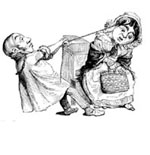
The Inspiration of the Muses in Daily Life
TO LIVE WELL & ENJOY BEAUTY
The ancient Greeks bequeathed to Western civilization the notion of the Muses, the nine goddesses of inspiration who preside over the music, dance, poetry, and drama that enrich ordinary life. Greek composers of epic poetry, for example, invoked the Muses to lift their songs and stories to sublime heights. Thus Homer begins The Odyssey, “The hero of the tale which I beg the Muse to help me tell.” Virgil in The Aeneid also seeks their aid: “I pray for inspiration, to tell how it all began.” Throughout The Odyssey, Homer depicts scenes of giving welcome to travelers. The Muses attend these festive banquets, as the rites of hospitality provide not only food and shelter to the visitor but also an opportunity for conversation, storytelling, song, and dance. In one such scene, Alcinous, the King of Phaeacia, introduces Demodocus, the bard “whom the Muses loved above all others,” to entertain Odysseus with “his heavenly gift of delighting our ears whatever theme he chooses for his song.” As the bard plays his lyre, he is soon accompanied by a “band of expert dancers” who move Odysseus to wonder with the exquisite beauty of their art as “their feet came down to the sacred floor with a scintillating movement.” Odysseus calls these moments of hospitality attended by the Muses “something like perfection” — the supreme moments of life’s sweetness.
The Greek ideal of civilization — the art of living well, to use Aristotle’s phrase — incorporates the aspects of beauty in its many forms to distinguish human life from barbaric existence. In Pericles’s famous funeral oration from Thucydides’s The Peloponnesian War, the great statesman defined the Greek way of life as filled with the presence and influence of the Muses: “We have not forgotten to provide for our weary spirits many relaxations from toil; we have regular games and sacrifices throughout the year; our homes are beautiful and elegant; and the delight which we daily feel in all these things helps to banish melancholy.”
The Muses help dispel sadness and offer relief from the toil and tedium of life. As Plato writes in The Laws, without the Muses and the spirit of play, recreation, and leisure they bring to human life, man lives a dehumanized existence: “But the gods, taking pity on human beings — a race born to labor — gave them regularly recurring divine festivals, as a means of refreshment from their fatigue; they gave them the Muses, and Apollo and Dionysius as the leaders of the Muses, to the end that, after refreshing themselves in the company of the gods, they might return to an upright posture.” The Muses illuminate the classical distinction between the servile arts and liberal arts — the difference between the things man does as means to an end, like earning money, and the things he does as ends in themselves, like the enjoyment of recreation. The soul needs nourishment and refreshment as much as the body requires food and sleep.
In The Iliad the shield of Achilles depicts scenes from the daily life of the Greeks: a city at war and a city at peace, the sowing of fields and the harvest, judges working in a court of law to achieve a wise verdict and wedding guests celebrating with dancing, flutes, and harps. In all these instances, play follows work, and the Muses fill the occasions of recreation with the spirit of festivity. These scenes show that man requires the inspiration of the Muses to transcend mere physical existence — to live well and enjoy the beauty of the arts.
You May Also Enjoy
Literature offers many examples highlighting the fact that, in very subtle ways, men can be victimized -- even “tortured” -- by the fair sex.
The opening struggle for a New Jerusalem is naturally beyond anyone’s ken. A novelist, perhaps alone among us, has the capacity to make compelling guesses.
Macbeth, Lear, Othello, Hamlet, Falstaff, Henry IV — are these immortal portraits of sinful humanity not the very crucible of Shakespeare’s art?

